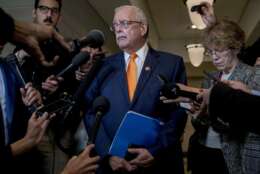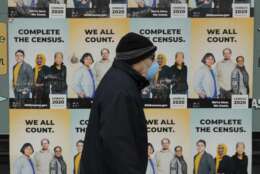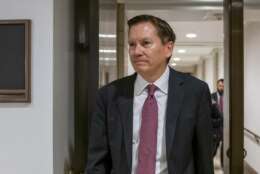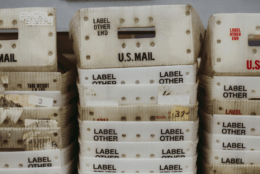Agency Oversight
-
In today's Federal Newscast, House and Senate Democrats push back on reports that the Trump Organization seeks to reduce its rent on the Trump Hotel in D.C. during the pandemic.
April 24, 2020 -
Congress has approved nearly $3 trillion to keep government services and the economy running during the coronavirus pandemic, but standing up the layers of oversight into that spending has gone less smoothly.
April 24, 2020 -
This week on Leaders and Legends, host Aileen Black interviewed Emily Murphy, administrator of the General Services Administration.
April 23, 2020 -
One of the government's long-serving chief information officers has some practical advice for telework effectiveness in times like these.
April 23, 2020 -
The Drug Enforcement Administration has made a number of moves to help in the federal response to coronavirus.
April 23, 2020 -
Untold numbers of businesses are applying for federal assistance, including federal contractors. But federal loans and grants come with strings.
April 22, 2020 -
When its Mexico border apprehensions soared last year, Customs and Border Protection hired a contractor to build a temporary detention center. It could hold 2,500 detainees, but in reality, it never had more than a few dozen at a time.
April 22, 2020 -
The Census Bureau’s efforts to get a snapshot of conditions under the pandemic comes a few weeks after calls for Congress to fund a “robust data infrastructure” under the CARES Act went unheeded.
April 22, 2020 -
Recent forced departures of high profile inspectors general under controversial circumstances haven't sat well with whistleblower advocates.
April 21, 2020 -
It’s been several years since budget challenges caused federal agencies to offer widespread buyouts and early-outs to their workforces, but the Defense Contract Management Agency is finding itself in that position now.
April 20, 2020 -
The ruling gives the Postal Service and its regulator more to consider about its future business model, as USPS warns Congress that the coronavirus pandemic has triggered a steep decline in mail the agency “may never fully recover” from.
April 17, 2020 -
The Trump administration's recent dismissal of two department level inspectors general isn't sitting well with everyone.
April 16, 2020 -
The Government Accountability Office found that agencies with improper payment mitigation programs in place don't actually measure how effective they are.
April 15, 2020 -
The USPS Office of Inspector General surveyed the postal services of six nations to see how they deal with rural networks.
April 15, 2020 -
To a certain cadre of thinkers, the coronavirus crisis is no surprise. For example, the National Intelligence Council accurately predicted it back in 2004.
April 14, 2020















